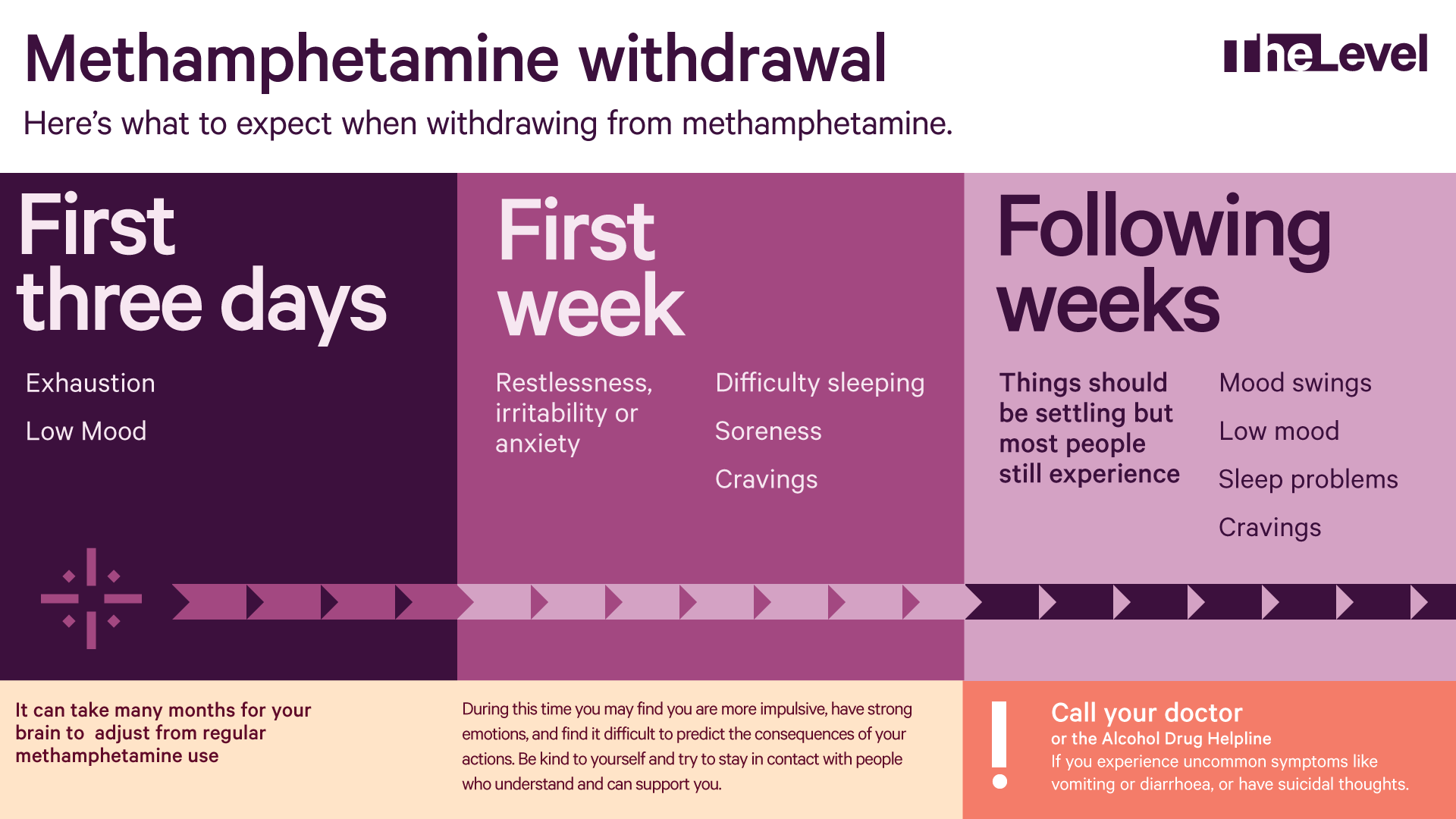SubMenu
Meth
Methamphetamine is a powerful, highly addictive stimulant that affects the central nervous system. Crystal methamphetamine is a form of the drug that looks like glass fragments or shiny, bluish-white rocks. It is chemically similar to amphetamine, a drug used to treat attention-deficit hyperactivity disorder (ADHD) and narcolepsy, a sleep disorder.
People can take methamphetamine by:
- smoking
- swallowing (pill)
- snorting
- injecting the powder that has been dissolved in water/alcohol
Because the "high" from the drug both starts and fades quickly, people often take repeated doses in a "binge and crash" pattern. In some cases, people take methamphetamine in a form of binging known as a "run," giving up food and sleep while continuing to take the drug every few hours for up to several days.
Methamphetamine increases the amount of the natural chemical dopamine in the brain. Dopamine is involved in body movement, motivation, and reinforcement of rewarding behaviors. The drug’s ability to rapidly release high levels of dopamine in reward areas of the brain strongly reinforces drug-taking behavior, making the user want to repeat the experience.
Health Effects of Methamphetamine
Taking even small amounts of methamphetamine can result in many of the same health effects as those of other stimulants, such as cocaine or amphetamines. These include:
- increased wakefulness and physical activity
- decreased appetite
- faster breathing
- rapid and/or irregular heartbeat
- increased blood pressure and body temperature
People who inject methamphetamine are at increased risk of contracting infectious diseases such as HIV and hepatitis B and C. These diseases are transmitted through contact with blood or other bodily fluids that can remain on drug equipment. Methamphetamine use can also alter judgment and decision-making leading to risky behaviors, such as unprotected sex, which also increases risk for infection.
Methamphetamine use may worsen the progression of HIV/AIDS and its consequences. Studies indicate that HIV causes more injury to nerve cells and more cognitive problems in people who use methamphetamine than it does in people who have HIV and don't use the drug.1 Cognitive problems are those involved with thinking, understanding, learning, and remembering.
Long-term methamphetamine use has many other negative consequences, including:
- extreme weight loss
- addiction
- severe dental problems
- intense itching, leading to skin sores from scratching
- anxiety
- changes in brain structure and function
- confusion
- memory loss
- sleeping problems
- violent behavior
- paranoia—extreme and unreasonable distrust of others
- hallucinations—sensations and images that seem real though they aren't
In addition, continued methamphetamine use causes changes in the brain's dopamine system that are associated with reduced coordination and impaired verbal learning. In studies of people who used methamphetamine over the long term, severe changes also affected areas of the brain involved with emotion and memory. This may explain many of the emotional and cognitive problems seen in those who use methamphetamine.
Although some of these brain changes may reverse after being off the drug for a year or more, other changes may not recover even after a long period of time. A recent study even suggests that people who once used methamphetamine have an increased the risk of developing Parkinson's disease, a disorder of the nerves that affects movement.
Overdose
An overdose occurs when the person uses too much of a drug and has a toxic reaction that results in serious, harmful symptoms or death.
In 2017, about 15 percent of all drug overdose deaths involved the methamphetamine category, and 50 percent of those deaths also involved an opioid, with half of those cases related to the synthetic opioid fentanyl. It is important to note that cheap, dangerous synthetic opioids are sometimes added to street methamphetamine without the user knowing.
Because methamphetamine overdose often leads to a stroke, heart attack, or organ problems, first responders and emergency room doctors try to treat the overdose by treating these conditions, with the intent of:
- restoring blood flow to the affected part of the brain (stroke)
- restoring blood flow to the heart (heart attack)
- treating the organ problems
Addiction
Methamphetamine is highly addictive. When people stop taking it, withdrawal symptoms can include:
- anxiety
- fatigue
- severe depression
- psychosis
- intense drug cravings
While research is underway, there are currently no government-approved medications to treat methamphetamine addiction. The good news is that methamphetamine misuse can be prevented and addiction to the drug can be treated with behavioral therapies. The most effective treatments for methamphetamine addiction so far are behavioral therapies, such as:
- cognitive-behavioral therapy, which helps patients recognize, avoid, and cope with the situations likely to trigger drug use.
- motivational incentives, which uses vouchers or small cash rewards to encourage patients to remain drug-free
Research also continues toward development of medicines and other new treatments for methamphetamine use, including vaccines, and noninvasive stimulation of the brain using magnetic fields. People can and do recover from methamphetamine addiction if they have ready access to effective treatments that address the multitude of medical and personal problems resulting from long-term use.

Content Editor:
Jordan Frazer
530-895-2441

